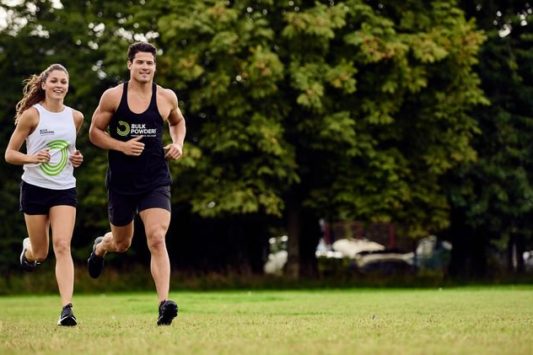The debate still rages on as to which is the most important, training or nutrition, when it comes to reaching your goals. The reality is the importance we might place on each of these can actually change depending on the context in which we might think about training or nutrition being important.
For example, if we are thinking about elite level athletes, or those looking to get the best possible physique in the least possible time, then the proper programming of both training and nutrition is essential, with no single factor being decidedly more important than the other.
For the general population, the adage ‘you can’t out-train a bad diet’ is certainly true for those looking to lose weight. In many cases, these people can exercise regularly but struggle to lose weight because either they compensate by over-consuming calories, or they reduce other daily activity so much so that they don’t get the results at the rate they may expect [1].
For people looking for a sole focus on weight loss, who maybe come from a more sedentary background or are very overweight, then nutrition is often the most important factor simply because it is, at least on face value, easier and less stressful to manage a reduction in calorie intake than it is to go to a gym where body image or motivation to commit their time when restricting food intake requires much less effort [2].
That being said, exercise independent of changes in food or even resulting weight loss is beneficial purely from a health perspective as it improves many health markers even without a positive change in diet [3]. Obviously though, to truly be as healthy as possible we also need to provide the body with a diet that not only controls weight, but provides essential nutrients in sufficient amounts.
Although exercise might be seen as the more challenging route, after committing to a good exercise regime, these habits tend to extend into long-term lifestyle changes, having a carry-on effect into the development of more positive eating habits [4]. Food restriction may provide better results in the short-term, but long-term can cause adherence issues, resulting in weight regain, so using exercise to offset these increases in food is a potentially valuable tool for weight management.
So, if you had to pick one to begin with as the most important, which would it be? Well, as you can see it depends on context; if someone is overweight and wants to be healthier but isn’t too fussed about weight loss, then exercise might be a good place to start before encouraging small changes in diet over a long-term period towards a best-of-both-worlds approach.
For someone who is overweight and inactive, then we might think about controlling nutrition first and encouraging activity in other ways besides hitting the gym, such as walking to work and trying to be more active on a day-to-day basis to create a calorie deficit, and then with time look to introduce structured exercise.
For those first entering the gym whose goals are to build muscle, even with a relatively poor diet, if enough calories are consumed with even a moderate amount of protein, training will likely be the most important focus. ‘Newbie gains’ often come easy and with learning to train properly, with a focus on technique and intensity, this is likely to be the most important focus. As we become more experienced, trainers who are conditioned to hard training who have maxed out their beginner gains will tell you the gym then becomes the easy bit once you are conditioned to it (relatively speaking!) and more focus needs to be placed on prioritising the right nutritional, supplement and lifestyle habits as those gains become harder and harder to come by.
Ultimately at some point though, no matter a person’s starting point, their goals and their preferred nutritional and training targets, there always comes a point where to make further progress these factors must overlap and eventually, depending on the level we wish to take our physique or performance, will become completely intertwined and include other factors such as hydration, supplementation, promoting proper sleep and managing stress.
References
- Drenowatz, C. Reciprocal Compensation to Changes in Dietary Intake and Energy Expenditure within the Concept of Energy Balance. Advances in Nutrition. 2015, 6, pp. 592-599. Available from: http://advances.nutrition.org/content/6/5/592.short
- Johns, D.J, Hartmann-Boyce, J, Jebb, S.A and Aveyard, P. Diet or Exercise vs Combines Behavioural Weight Management Programs: A Systematic Review and Meta-Analysis of Direct Comparisons. Journal of the Academy of Nutrition and Dietetics. 2014, 144(10), pp. 1557-1568. Available from: http://www.sciencedirect.com/science/article/pii/S2212267214010557
- Warburton, D.E.R, Nicol, C, W and Bredin, S.D. Health benefits of physical activity: the evidence. Canadian Medical Association Journal. 2006, 174(6), pp. 801-809. Available from: http://www.cmaj.ca/content/174/6/801.short
- Swift, D.L, Johannsen, N.M, Lavie, C.J, Earnest, C.P and Church, T.S. The Role of Exercise and Physical Activity in Weight Loss and Maintenance. Progress in Cardiovascular Diseases. 2014, 56(4), pp. 441-447. Available from: http://www.sciencedirect.com/science/article/pii/S0033062013001655






